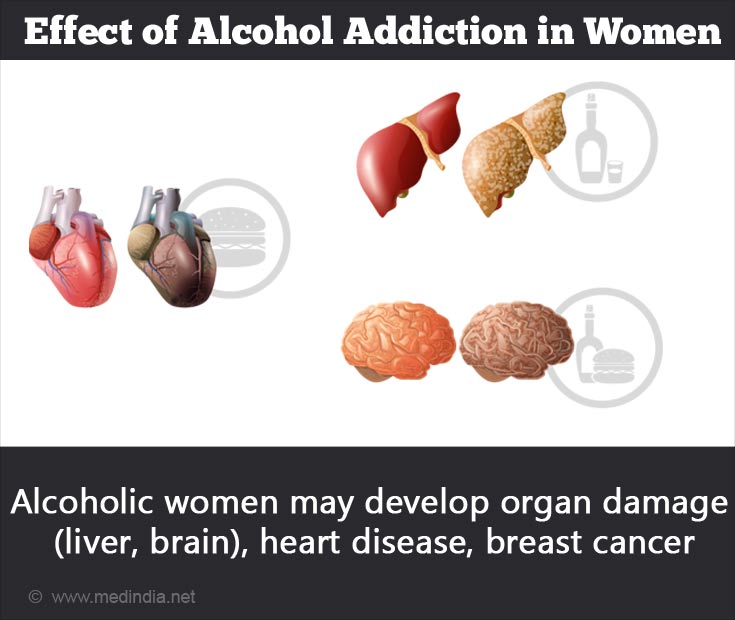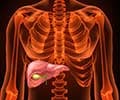Effect of Alcohol
As fat cannot absorb alcohol, it is concentrated at higher levels in the blood. Women are at a higher risk for certain diseases like liver, brain and heart damage. Women are also generally shorter and lighter than men, further concentrating alcohol in their blood. Therefore when a woman of average size consumes one drink, it will have almost the same effect as two drinks for the average size man. If women eat little or skip food entirely, that compounds the effects.
Hormone changes during the menstrual cycle can also affect alcohol metabolism, increasing the impact. Kolkata based general physician Dr. Kajal Bose is of the opinion that women are more affected by alcohol because they tend to have a higher proportion of body fat than men. Men should drink no more than 21 units of alcohol per week, and no more than four units in any one day. Women should drink no more than 14 units of alcohol per week, and no more than three units in any one day. (Pregnant women should not drink at all.)
A recent study also suggests that women have a higher amount of alcohol in their blood when compared to men and they become more dysfunctional after drinking the same amount of alcohol. They become more prone to organ damage.

There are many multiple factors that affect women more than men even though they drink the same amount of alcohol such as:
Liver Damage - Women develop liver disease over a shorter period of time. Women are also more likely to develop alcoholic hepatitis resulting in death.
Brain Damage - Women may be more vulnerable to brain damage. With the help of MRI scans, a study shows that multiple brain functions are reduced in alcoholic women when compared to both nonalcoholic women and alcoholic.
Heart Disease - Despite women's 60 percent lower lifetime alcohol use, research shows that similar rates of heart muscle disease (cardiomyopathy) for both men and women, among heavier drinkers.
Breast Cancer - Many studies report that moderate to heavy alcohol consumption increases the risk for breast cancer.
















